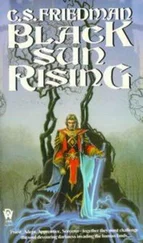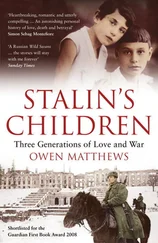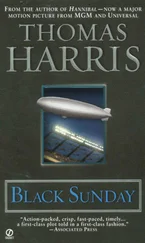“Bigger than that. Hundreds of times bigger. See, I wanted to fill you in on what they do here. They make machines to kill the planet.”
SUNDAY, 22 OCTOBER 1961
EIGHT DAYS BEFORE THE TEST
I
Early the next morning Vasin turned up his mackintosh collar against the rain and mist that drifted down the broad boulevard outside Kuznetsov’s apartment building. The sky was heavy with low, dawdling clouds. The slow weather of deep Russia, where seasons follow each other like a procession of steamrollers, trundling and relentless. Autumn was a dripping season of sweet rot and the sound of running water in hidden places.
Kuznetsov’s jeep shuddered reluctantly into life. He gunned the engine to attract Vasin’s attention.
“Come on, old man. Big shots are waiting for you.”
Kuznetsov dropped him off in front of Arzamas’s KGB headquarters, a stubby modern block screened from the street by a row of fir trees. In the forecourt stood a bust of Felix Dzerzhinsky, founder of the Soviet secret police, his bronze face glistening in the rain.
In the lobby secretaries carrying files clicked on high heels across the marble floor. Even on Sundays and holidays, night and day, the kontora worked on. A boy-sentry entered Vasin’s name in a ledger with painstaking formality. The place had the same thick smell of floor polish and wet overcoats as his office in Moscow. Somewhere two typewriters clicked in busy disunison. A telephone rang, unanswered.
General Zaitsev’s secretary had buttery blond dyed hair and a face that seemed to have been disfigured permanently by constant lying.
“The General has been delayed,” she told him archly. “Wait.”
“Very good. Please tell the Comrade General that I shall take the opportunity to visit the canteen. Downstairs, I imagine?”
A crack of disapproval creased the secretary’s makeup.
“Ah! And the latest issue of Krokodil ! May I?”
Without waiting for an answer Vasin picked up the Soviet Union’s best-loved satirical magazine from a low table. He shrugged off his wet mackintosh and hung it, dripping, on the General’s coat stand. Then he went in search of coffee.
The basement cafeteria at the tail end of breakfast was almost deserted. Vasin bought himself a sweet roll and a cup of excellent coffee, Cuban, fresh-ground. He settled at a table and began to leaf through the magazine. The usual nonsense: caricatures of drunken workers, comic poems about nagging mothers-in-law, prose sketches of the charms and absurdities of rural life. From the corner of his eye he saw a tall officer in an immaculately pressed uniform with adjutant’s braids enter the dining room. The man peered about, spotted him, then strutted across the room like a clockwork toy.
“Comrade Major Vasin.”
It was not a question. The officer sat down heavily opposite him.
“I am Major Oleg Efremov, General Zaitsev’s adjutant.”
The officer’s pointed gaze made a slow tour of Vasin’s face. He took in the glasses, the soft hands, and Vasin’s eyes, steady and insolent as they met his.
“The General is waiting for you. If you please.”
—
In his tight-fitting tunic General Zaitsev looked like a pre-Revolutionary farmhand buttoned uncomfortably into his Sunday outfit. His neck was wider than his face, and he sat with huge, scarred fists clenched on the table like an ogre ready to eat an intruder who has strayed into his kingdom. One of the university-trained milksops who’d come into the service since Stalin died, for instance. Vasin recognized Zaitsev’s type. A State Security officer of the old school, who had earned his stars in blood-spattered execution cellars. A man who’d breathed the smell of fresh death.
“The government inspector has come to check on us.”
Zaitsev spoke with a thick country accent and addressed Vasin in the familiar form, like a wayward child.
“No, sir. I have no reason to believe that your work is anything but of the highest quality.”
“I am told you personally approached Professor Adamov last night. But you had not presented your credentials to the local authorities. To me.”
Vasin nodded slowly. Zaitsev’s butcher’s face. Those joint-popping hands.
“My apologies, General. My credentials are all here.”
Vasin pulled a sheaf of letters from his tunic pocket and held them out. Zaitsev did not take them.
“Listen to me now. This city is governed by a special regime. There are procedures—”
“General,” Vasin interrupted. “With all respect, my orders are very clear.”
Zaitsev’s face flushed a deeper shade of red.
“My investigators have already reached a conclusion.” The General’s voice was emphatic as a blow from a billy club. “The evidence clearly shows that Fyodor Petrov killed himself. The investigation is over. We are filing the report. You are too late.”
Vasin composed his face into a mask of humility.
“Yes, Comrade General.” Vasin had been through this before. By rank, he was a subordinate. But by the authority he represented he was… something else. Something that must be hinted at delicately. At first. “But I have been ordered by the competent authorities to conduct an independent review of the evidence. And you of course would not wish me to disobey my orders. As you are aware, the deceased’s father is personally close to many members of the Politburo.”
Zaitsev gave a porcine grunt.
“Review if you have to. We have assembled definitive evidence. But you are not to approach or harass the principal witnesses. They have already been interviewed to my satisfaction. Is that clear?”
“Definitive evidence, sir?”
“Definitive. Petrov died of thallium poisoning. A radioactive heavy metal. He used thallium in his laboratory. Signed for every milligram taken. But he did not use every milligram. The records prove it. A substantial quantity of the thallium is missing. Some two thousand milligrams unaccounted for. Is that definitive enough for you, Major?”
“May I be allowed to see the records, General?”
Zaitsev’s scowl turned even more venomous. He turned to his adjutant.
“Efremov? The man from Moscow does not believe me. Bring our transcript of the laboratory files.”
Efremov curled his nose as though at a bad smell and obeyed. While he busied himself opening a large steel safe at the back of Zaitsev’s office, the General plucked a sheaf of papers from his in-tray and began to read them, demonstratively ignoring Vasin.
“Comrade General? The report you asked for.”
Zaitsev plucked the gray file from his assistant’s delicate hand. The cardboard cover creased in the grip of the General’s thick fingers.
“Right. Vasin. Here. Look at it. Every sample of thallium Petrov signed out for the last month. There, on the left, every gram he used in his tests. There, in red, the amount unaccounted for. Took a team of five men three days to comb through all the files to get the information. Began immediately after the postmortem report, finished last night.”
Vasin flicked through the columns of numbers, dates, amounts. They meant nothing to him. As Zaitsev knew.
“May I keep this?”
“You may not. As you see, it is marked ‘Top Secret.’ ”
“And the transcripts of the witness interviews?”
“They will be filed in the registry, in due course. The case file is being collated now. As per our procedures. When it’s finished, you will read it. And agree with it.”
“And the body?”
Zaitsev snorted.
“In a secure morgue.”
“When may I be allowed to see it?”
“Never. Too radioactive. The radiation dissolves tissue like a sugar cube in tea. Or so I’m told.”
Читать дальше












